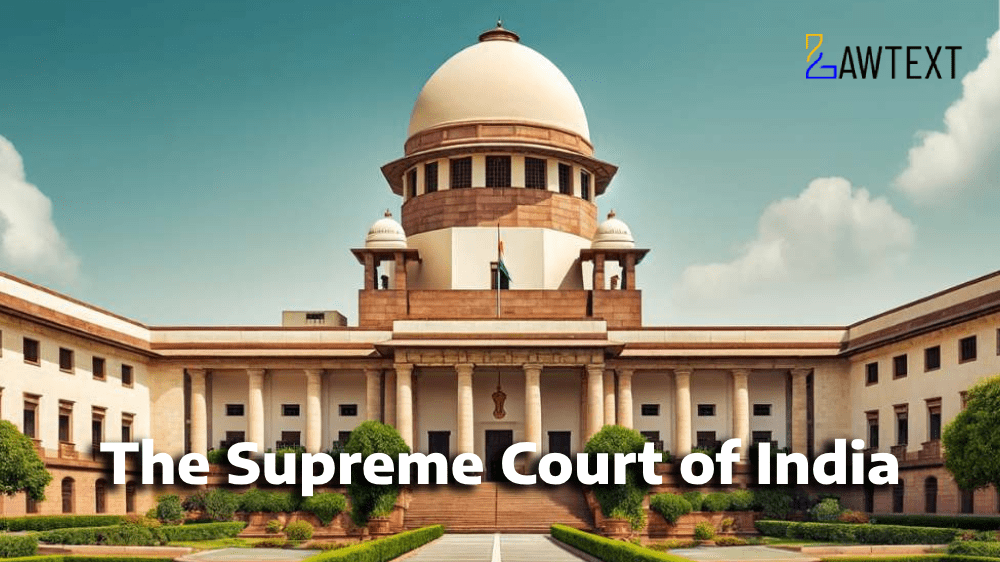CASE NOTE & SUMMARY
Acts and Sections Discussed:
- Indian Penal Code (IPC): Sections 294, 323, 506, 353, 352 read with Section 34, Section 307
- Code of Criminal Procedure (CrPC): Section 161
The Supreme Court of India reversed a judgment of the Madhya Pradesh High Court, which had dismissed charges under Section 307 IPC (attempt to murder) against eight accused persons involved in an alleged assault on the appellant, who was Chairman of the District Waqf Board, Seoni. The Court noted that the injuries sustained by the complainant, though minor in appearance, could have led to a fatal outcome due to suspected throttling. The Court emphasized that the intention to kill must be examined at trial and that the nature of the injuries does not preclude the framing of charges under Section 307 IPC.
The Supreme Court concluded that the High Court and Trial Court improperly dismissed the framing of Section 307 IPC charges, relying on the minor nature of the injuries. It held that the doctor's report of potential throttling raised a prima facie case under Section 307 IPC, and this matter required a thorough examination at trial.
Background Facts and Procedural History
- High Court's Judgment (Para 1): The complainant challenges the Madhya Pradesh High Court judgment confirming the acquittal of the accused by the Sessions Court for charges under various sections, including Section 307 IPC.
- Complainant’s Role (Para 2): The complainant was the Chairman of the District Waqf Board, and after a dispute with a mosque committee, he was allegedly assaulted.
- FIR and Charges (Paras 3-5): An FIR was lodged, and the accused were taken into custody. Initially, the Additional Sessions Judge framed charges under Section 307 IPC, but this was set aside by the High Court.
- Medical Report (Para 6-7): The medical report indicated that throttling could have caused respiratory arrest, but the High Court dismissed the Section 307 charge.
- High Court’s Dismissal of Section 307 IPC (Para 8): The High Court dismissed the revision petition, concluding that Section 307 IPC was not applicable.
Consideration by Supreme Court
6. Arguments by Appellant (Para 9): The complainant argued that the injuries, including suspected throttling, warranted framing of charges under Section 307 IPC.
7. Section 307 IPC (Para 10): Section 307 IPC, which deals with attempt to murder, was examined in light of previous judgments.
8. Judicial Precedents (Paras 11-12): The Court referred to various decisions, emphasizing that intention to kill is critical for Section 307 IPC, and injuries need not be severe to apply the section.
9. Doctor’s Opinion (Para 13): The doctor's report highlighted the possibility of respiratory arrest due to throttling, suggesting that the injuries could have been fatal.
10. Court's Conclusion (Para 14): The Court concluded that the High Court erred in not framing Section 307 IPC charges and directed a retrial.
Judgment and Directions
11. Judgment Set Aside (Para 16): The Supreme Court set aside the High Court judgment and directed the trial court to proceed with charges under Section 307 IPC.
12. Registry Instructions (Para 17): The Court ordered the transmission of its judgment to the concerned authorities for further action.
Ratio:
The Supreme Court emphasized that the severity of the injury is not the sole determinant in framing charges under Section 307 IPC. What is crucial is the intent behind the act, and even minor injuries could support a charge under Section 307 if there was an intention to cause death. The Court also reiterated that during charge framing, detailed evidence assessment is not required; prima facie material suffices.
Subjects:
- Section 307 IPC (Attempt to Murder)
- Framing of Charges
- Criminal Revision
- Intent and Injuries
- Indian Penal Code
- Assault Cases
- Waqf Board Dispute
Citation: 2024 LawText (SC) (9) 252
Case Number: CRIMINAL APPEAL NO. 3327 OF 2024
Date of Decision: 2024-09-25
Case Title: SHOYEB RAJA Versus STATE OF MADHYA PRADESH & ORS.
Before Judge: (C.T. RAVIKUMAR J. , SANJAY KAROL J.)
Appellant: SHOYEB RAJA
Respondent: STATE OF MADHYA PRADESH & ORS.

